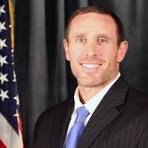The Challenge of the Washington Chain Saw Massacre (Part 2)
Last week I endorsed the idea that it is useful, from time to time, for governments (or any organization) to do a systematic review of their employees to determine if folks are doing their jobs and if their jobs are important to do.
And I argued that the way DOGE was conducting its downsizing was exactly wrong: the use of blanket buyouts, terminations of all new employees, and requirements of in-person attendance regardless of job or available space makes clear:
DOGE’s goal is more to act quickly than to act carefully and to prioritize making government smaller over making government better.
DOGE would argue that smaller government is, by definition, better government. I would say, “sometimes.”
Government is not inherently good or bad. Government employees are not uniformly, or even frequently, “fraudsters.” And treating 2.3 million employees as indistinguishable and fungible risks losing a lot of people we depend on to make our lives better.
Chain saws are really effective on trees. When dealing with people — or organizations that serve people — scalpels make more sense.
This week I’d like to look at a couple of federal employees who work in the jobs that are probably most hated by US citizens – one an IRS agent and another a regulator. I found their stories in a new book I’ve been reading, edited by Michael Lewis: Who Is Government? The Untold Story of Public Service. The employees were identified with the help of a group called the Partnership for Public Service, a nonprofit that exists to encourage and recognize excellence among federal employees.
I want to lift these two stories up because they make a compelling argument for thoughtfully, carefully reviewing the work of government employees before firing them. Even those we think we hate.
Jarod Koopman is what we in the southern United States have historically called a “revenooer.” He’s an IRS agent charged with finding and arresting people who cheat on their taxes, a job that Fox News anchor Brian Kilmeade described as permitting him to “hunt down and kill middle class taxpayers that don’t pay enough.” IRS agents have been early victims of the DOGE’ing of America, and, if you are thinking strategically, you might guess why: nobody likes to pay taxes and the IRS is the least popular of government agencies: 50% of Americans have an unfavorable opinion of it.
Plans have been announced so far to cut a third of the workers at the IRS, with an eventual goal of 50% reduction in force, and the administration has said its eventual goal is to abolish the agency altogether and replace it with an “External Revenue Service” funded through tariff revenues. Before all the layoffs and smacktalk, the IRS was already short-staffed: each year it undercollects revenue it is owed by an estimated $700 billion. Danny Werfel, the immediate past IRS commissioner, says that since 2017, some 25,000 people earning more than $1 million a year have gotten away without filing a return simply because the IRS didn’t have the staff to pursue them. The reductions this year make it even harder to police higher income individuals: the number of agents charged with auditing billionaires has just been cut by 38%.
Koopman’s been a field agent since 2001. Tell me if you think we need to get rid of him.
Early in his career Koopman worked on cases of people who committed investment fraud or carried out Ponzi schemes. Since 2012 he has specialized in cryptocurrency, and has been remarkably successful in finding the people abusing it.
Which part of Jarod Koopman’s work at the IRS do you want to get rid of? (Photo IRS)
· He tracked down Ross Albricht, the previously anonymous mastermind of Silk Road, a drug bazaar on the dark web using crypto. As part of the investigation, members of Koopman’s team located a stash of Bitcoin that had been stolen from Silk Road by a student named Jimmy Zhong a few years earlier. That netted $3.6 billion for US taxpayers (President Trump pardoned Albricht in January, saying his arrest was an example of “government overreach.”)
· He busted Jong Woo Son, who was using Bitcoin to run a child pornography business, called “Welcome to Video,” from his bedroom in Seoul. Ultimately, an additional 370 people involve were arrested. The funds seized in that case were used to support 23 children who were rescued from their abusers.
· He discovered a Bitcoin fundraising scheme designed to illegally raise money for Hamas terrorism. Then he and his team co-opted it, ensuring that all donations to the site instead flowed to the US “Victims of State-Sponsored Terrorism Fund.”
· Then he turned his attention to Binance, a crypto exchange that was intentionally ignoring US financial services rules. After discovering the platform was being used to, among other things, launder drug money, finance child pornography and pay for North Korea’s nuclear weapons program, Koopman’s team arrested the CEO, Changpeng Zhao. Zhao stepped down as CEO, paid a $50 million fine and went to jail. Binance paid a $4.3 billion fine, one of the biggest criminal settlements in history (Zhao has denied a Wall Street Journal report that he is seeking a pardon from the Trump administration).
Do we give Jarod Koopman the chainsaw treatment? Is he an enemy of the people?
Or how about Christopher Mark, a former coal miner who got tired of seeing his friends killed in mine collapses? Mark fits into another of those hated government categories. He’s a regulator.
By 1987, when Mark went to work in the Bureau of Mines, 50,000 Americans had died from falling rocks in mines.
Mine collapses were expensive for the mining industry, but not expensive enough for them to undertake a study to determine how to prevent them. As Michael Lewis puts it in his story about Mark: “Industry executives… made it clear to Chris (Mark) that they viewed safety as a subject for wimps and losers. And no one coal mining company was likely to fund the research that would benefit all coal companies.” Instead, Mark took on the research as his job.
Because each mine had a different mix of rock and load, there was no single mathematical formula to predict mine failure, it took Mark ten years to develop a mine safety scoring system, ranking mines on a 1-100 system for stability. The mining companies that had wanted no part in funding research were glad to have it: each minute that a mine was closed cost them $200. No regulations were required; implementing the government research Mark developed saved mining companies millions.
Chris Mark’s work led to the first year ever in the US with no coal miner deaths from mine collapse (photo Washington Post).
Mark’s next project focused on coal mining injuries, which are 100 times more common than deaths. He found that the best way to prevent rocks from crashing through mine roofs was to stop using timber to support them and to start using a stronger technology called “roof bolts.”
The problem: roof bolts were expensive, and even though mining companies knew that installing more of them would make the mines safer, they routinely chose not to.
“No one puts people’s lives at risk per se,” Mark told Lewis. “It’s not obvious most of the time that people’s lives are at stake. You’re always playing probabilities. But they knew what they were doing. They could see people dying…. These were not dumb guys. This was a conscious decision.”
In this case the mining companies knew what they should do – build stronger roofs – and they knew why they should do it – to reduce injuries and death to their workers. But the “free market” wasn’t working. So the government had to step in: “The regulators were finally empowered to regulate,” he said. “Regulators need to be able to enforce.”
The combination of research voluntarily implemented by companies that didn’t want to pay for it themselves and regulations enforced when companies wouldn’t comply? It paid off. By 2016, for the first time in history, 0 underground coal miners were killed by falling roofs.
It’s a serious enterprise to calibrate how to have a government that is right-sized to keep our air and water (and food and roads and parks and drugs and schools and homes and assembly lines and mines) safe; that ensures we get the health care and energy we need; that maximizes the chances to bring our full brainpower to bear on big problems; that protects us from threats from within and without; that helps the weak grow strong and the strong grow great.
Figuring out how to do that requires thought and care. Not a chainsaw.
-Leslie
Notes:
Mandatory return to work as a downsizing strategy: https://www.nytimes.com/2025/03/31/us/politics/federal-workers-return-to-office.html?smid=nytcore-ios-share&referringSource=articleShare
Partnership for National Service: https://ourpublicservice.org
Geraldine Brooks story on Jarod Koopman: https://www.washingtonpost.com/opinions/interactive/2024/cyber-sleuth/
Kilmeade characterization of IRS agents: https://www.nbcnews.com/politics/politics-news/irs-launches-security-review-misinformation-threats-agency-rcna44524
Pew poll on size and reputation of government agencies: https://www.pewresearch.org/short-reads/2025/01/07/what-the-data-says-about-federal-workers/
Impact of proposed IRS cuts: https://www.frazierdeeter.com/insights/article/significant-reductions-in-irs-workforce-on-the-horizon/#:~:text=IRS%20Workforce%20to%20Shrink%20by,costs%20of%20about%20%2416%20billion.
IRS Commissioners on impact of agency cuts and undercollection: https://www.nytimes.com/2025/02/24/opinion/irs-taxes-trump.html
Replacing IRS with ERS: https://www.cbsnews.com/news/trump-tariffs-external-revenue-service/
The stolen Bitcoin recovery: https://servicetoamericamedals.org/honorees/trevor-mcaleenan-and-michael-lane/?utm_campaign=Five%20Stories%20of%20Public%20Service&utm_medium=email&_hsmi=354806384&utm_content=354806384&utm_source=hs_email
President Trump pardon of Ross Albricht: https://www.bbc.com/news/articles/cz7e0jve875o
US Victims of State Sponsored Terrorism Fund: https://www.usvsst.com/#:~:text=Congress%20created%20the%20USVSST%20Fund,%247%20billion%20to%20eligible%20victims.
The Welcome to Video case: https://en.wikipedia.org/wiki/Welcome_to_Video_case
Changpeng Zhao bio: https://en.wikipedia.org/wiki/Changpeng_Zhao
Zhao denial of Wall Street Journal report on pardon: https://fortune.com/crypto/2025/03/13/binance-cz-denies-trump-investment-pardon-campaign/
Michael Lewis story on Chris Mark: https://longreads.com/2024/09/05/the-canary/


